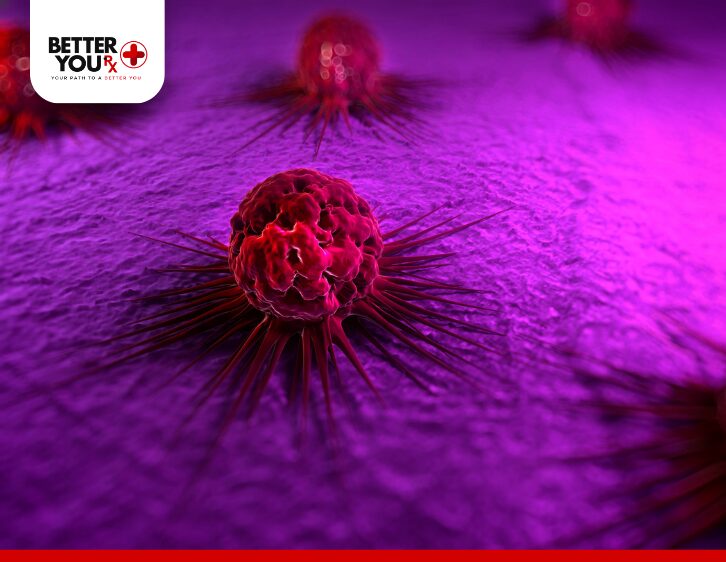When it comes to life-threatening illnesses, few evoke as much fear and uncertainty as cancer. The fear is well-founded; many have lost loved ones to this devastating disease. Advances in medical science have brought significant progress in cancer treatment, improving survival rates and enhancing quality of life for patients. Yet, a pressing question remains: Is there a cure for cancer?
The answer is complex and often misunderstood. Despite the desire for a definitive solution, the reality is that no universal cure for cancer exists. Let’s explore why this is the case, the treatments available, and the strides being made in the ongoing fight against cancer.
Understanding Cancer: Why Is a Cure So Challenging?

Cancer is not a single disease but a group of diseases characterized by the uncontrolled growth and spread of abnormal cells. The diversity of cancer types, combined with the unique biological and genetic makeup of each patient, makes finding a one-size-fits-all cure exceedingly difficult. Some cancers, such as certain types of leukemia, respond exceptionally well to treatment and can go into long-term remission. Others, like pancreatic cancer, remain stubbornly resistant to current therapies.
Additionally, cancer cells have the ability to adapt and evolve, often developing resistance to treatments. This complexity requires researchers and clinicians to continually innovate and personalize approaches to care.
Dispelling Myths: The “Hidden Cure” Conspiracy
A persistent conspiracy theory suggests that a cure for cancer exists but is being suppressed by pharmaceutical companies for financial gain. This notion oversimplifies the intricacies of cancer research and treatment. In reality, the medical and scientific communities are deeply committed to finding more effective treatments and, ultimately, cures. The billions of dollars invested annually in cancer research worldwide underscore the genuine dedication to this cause.
Current Treatments: Progress and Promise

While there is no universal cure, there are numerous treatments designed to target cancer effectively. These approaches aim to slow disease progression, eliminate cancerous cells, and, in some cases, achieve remission. Here are some of the most promising options:
Immunotherapy
Immunotherapy utilizes the body’s immune system to recognize and eliminate cancer cells. One approach involves using checkpoint inhibitors, which remove the “brakes” on immune cells, allowing them to attack tumors more aggressively. Another method is T-cell therapy, where a patient’s immune cells are extracted, modified to target cancer more effectively, and reintroduced into the body.
Cancer Vaccines
Researchers are developing vaccines that stimulate the immune system to recognize and destroy cancer cells. For instance, Sipuleucel-T, a vaccine for advanced prostate cancer, is already in use. While still in early stages for many cancer types, this field holds great promise.
Targeted Therapy
Targeted therapies use drugs or other substances to block specific molecules involved in cancer growth and progression. These therapies are often more precise than traditional treatments like chemotherapy, which can damage healthy cells alongside cancerous ones. Examples include monoclonal antibodies and small molecule inhibitors.
Advances in Chemotherapy and Radiation
Traditional treatments like chemotherapy and radiation have become more refined over the years, reducing side effects and improving effectiveness. Personalized approaches allow for tailored treatment plans that consider the specific type and stage of cancer.
The Role of Early Detection and Prevention

While the question “Is there a cure for cancer?” often dominates discussions, the importance of prevention and early detection cannot be overstated. Lifestyle changes, such as maintaining a healthy diet, exercising regularly, and avoiding tobacco, can significantly reduce the risk of many cancers. Routine screenings, such as mammograms, colonoscopies, and skin checks, enable early detection when treatment is most effective.
A Future Full of Hope
Although a universal cure for cancer remains elusive, the landscape of cancer treatment is continually evolving. Breakthroughs in genetic research, precision medicine, and artificial intelligence are accelerating the pace of discovery. Collaborative efforts between researchers, clinicians, and patients ensure that every new insight brings us closer to transformative solutions.
For patients navigating their cancer journey, the support of compassionate healthcare providers and access to innovative treatments can make all the difference. At Better You Rx, we are committed to helping individuals find affordable, high-quality medications that support their treatment plans. Our pharmacy-affiliated website connects patients to trusted Canadian pharmacies, ensuring access to life-saving treatments without financial strain.
The Bottom Line
Is there a cure for cancer? Not yet. However, the advances in treatment and prevention offer hope and underscore the resilience of the human spirit in facing this formidable challenge. By focusing on prevention, early detection, and the latest treatment options, we can continue to improve outcomes and move closer to a future where cancer is no longer a life-threatening disease.
Disclaimer: Disclaimer: This article is intended for informational purposes and should not be considered a substitute for professional medical advice.. Consult a healthcare provider for personalized guidance and treatment.



